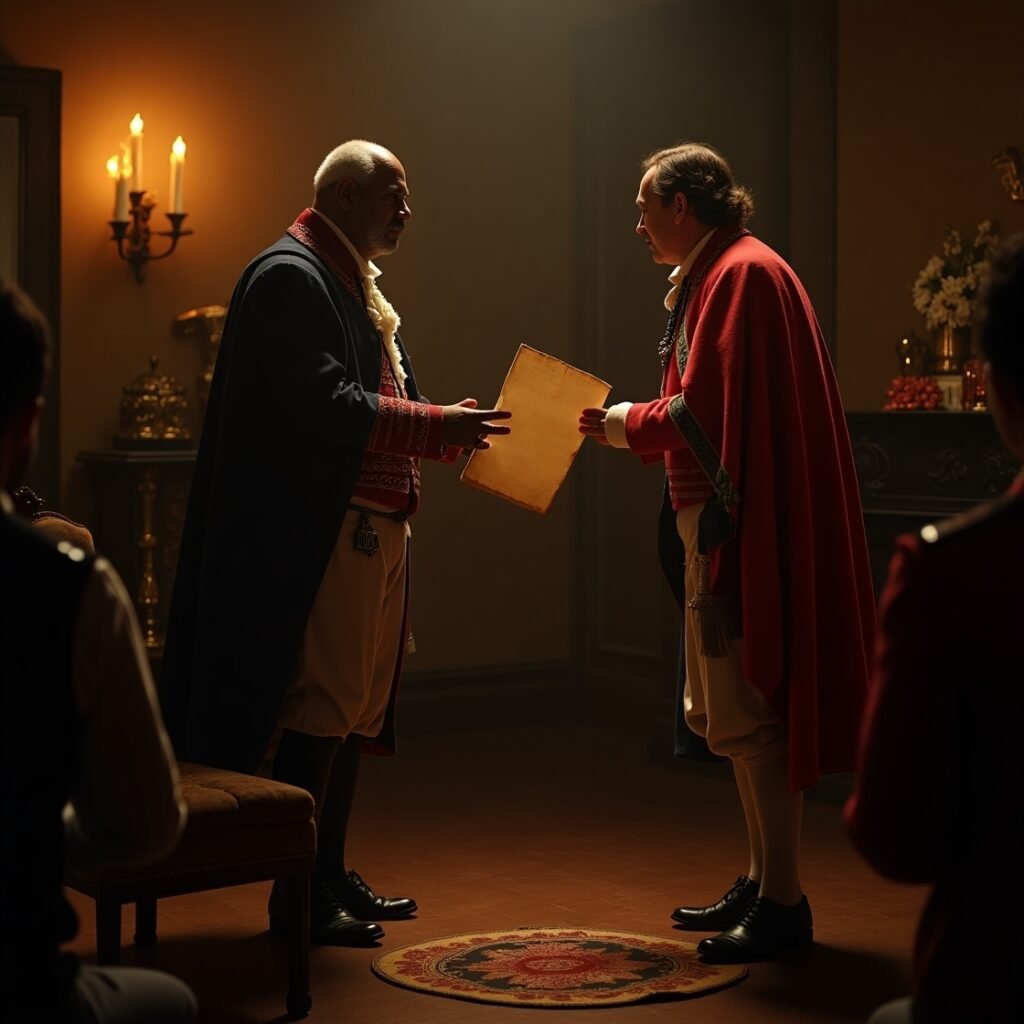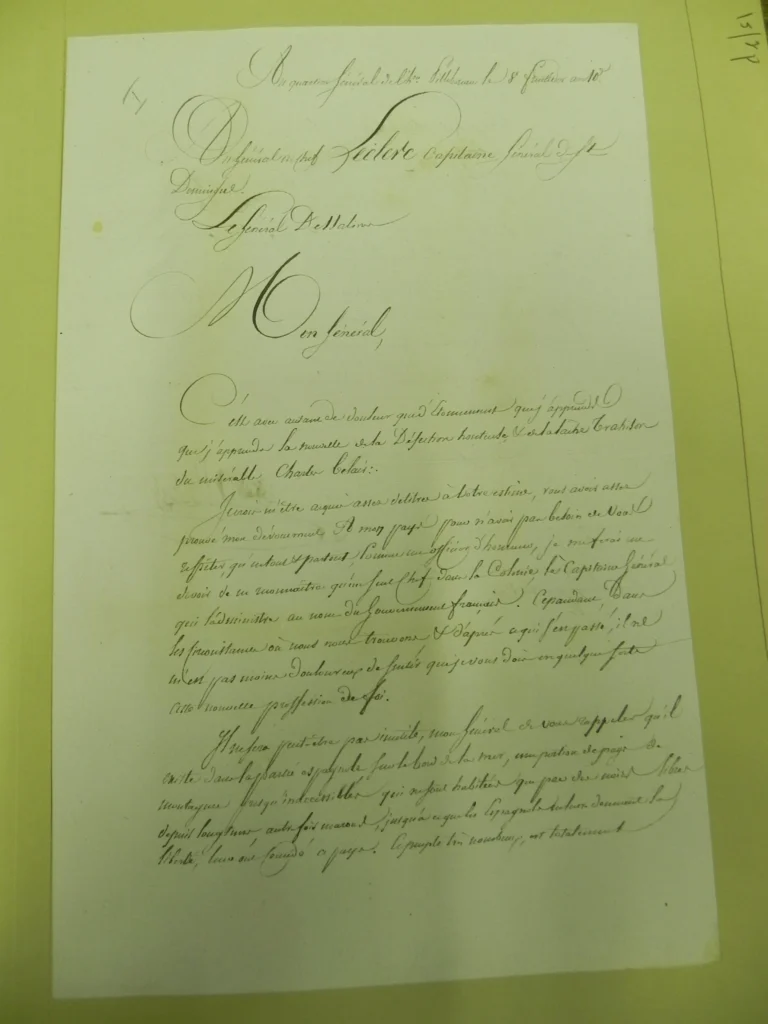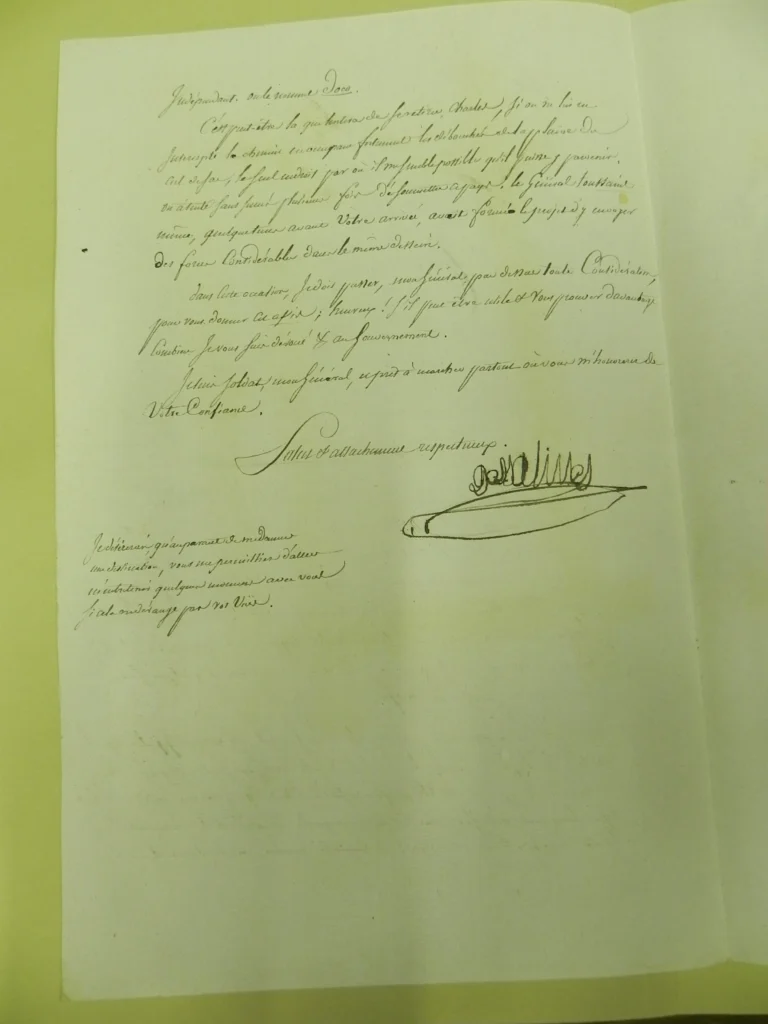Physical Address
304 North Cardinal St.
Dorchester Center, MA 02124
Physical Address
304 North Cardinal St.
Dorchester Center, MA 02124

Charles Bélair and the Web of Betrayal: A Fragment of Haitian Legacy
Throughout history, the Haitian Revolution—a symbol of Black resistance and triumph—has left behind whispers of stories untold, accounts withheld, and narratives marred by colonial agendas. One such thread involves Charles Bélair, an officer revered for his role in Saint-Domingue’s resistance, yet documented through controversy and betrayal. Within this critical letter from Dessalines to Victor, Captain General of the French Forces, we glimpse the complexity of characters, allegiances, and justice in a revolution marked by fractured trust.

In 1804, born from the flames of rebellion, Haiti became the world’s first Black-led republic, dismantling the chains of European colonialism and slavery. But before Toussaint Louverture proclaimed liberty, the revolution’s unity was precarious—a web of alliances, betrayals, and moral dilemmas shaped the battlegrounds. Officers like Charles Bélair fought for liberation, navigating promises pitched between the revolutionaries and colonial forces.
Bélair, hailing from a privileged background as Louverture’s nephew-in-law, commanded critical revolutionary campaigns yet lived with divided loyalties. As France attempted to reassert its grip on the colony post-Revolution, Bélair’s actions became the focal point of dissent—seen as both a revolutionary patriot and, in the eyes of Dessalines, treasonous. The letter poignantly exposes these tensions, culminating in Dessalines’ discomfiting stance between condemnation and goodwill.

History, when written by conquerors, often distorts the defeated into caricatures of betrayal, weakness, or plotting. European colonial literature paired Black freedom fighters against each other, positioning figures like Charles Bélair in villainous light while excusing the brutal apartheid of French dominion. Dessalines’ epistolary indictment echoes a colonial-designed trap in which even allies doubted one another’s allegiances.
Saint-Domingue’s revolutionary leaders faced not only external warfare but fracturing protégé-patron relationships. Figures like Bélair fought the injustice layered within the revolt—seeking reward, position, or favor for loyalty. Dessalines, therefore, finds himself lamenting how power dynamics and Belair’s alleged insubordination sowed discord.
In Western chronicles, Charles and his wife, Sanité Bélair, either emerge as footnotes or asymmetric threats, “traitors deserving consequence.” Yet, beneath history is personal allegiance and universal betrayal manifesting in futile pleas for justice.
The Dessalines letter invites reflection on the complexities surrounding Charles Bélair’s resistance and his wife, Sanité Bélair’s, unshakeable determination. Charles Bélair lived the perplexing duality of loyalty to Louverture’s larger vision, disenchantment with French subterfuge, and a burgeoning Haiti under Dessalines. Yet, this dance of power aligned differently for Sanité Bélair—a freedom fighter unmatched in valor.
Captured alongside her husband, Sanité resolutely refused to plead for life from their colonial captors, cementing her legend. Though both were executed in 1802, Sanité’s courage has endured as a symbol of revolutionary feminism, eclipsing her husband in modern recountings.
Dessalines’ letter, however, reveals a gripping layer of governance concerns intertwined with human frailty. By accusing Bélair of indifference toward duty, rebellion against order, and betrayal of self-determination, Dessalines sharpens tensions—seeking material order amid lives claimed by bigger revolutions.
What written decree exonerates or convicts Bélair? What unseen political turmoil governed Dessalines’ margin note concerning delay in payments? Themes of lost promise and ambition cloud Bélair’s legacy, yet they polarize us today: Was Charles Bélair entirely perfidious, or deeply misunderstood?
Haitian freedom resounds beyond its charismatic leaders. Figures like Bélair symbolize how systems of marginalization often vilify change-makers—those dwelling in gray zones of ambiguity, loyalty, or defiance. Today, stories like Charles Bélair’s expose fractures echoed in socio-political movements worldwide, including the disparaging labels on Black leadership efforts to critique oppressive regimes.
Such is the legacy of overlooked truths. Western academia still aligns against recognizing Dessalines, Sanité Bélair, or other maroons as heroes—their roles slandered within legalese or colonial misnarration akin to how Bélair’s “treachery” was categorized by unreliable French justice.
Revisiting figures such as Bélair clears frameworks for intersections within philanthropy, feminism, and Black nationalism today. We defy silencing Haitian imagination—reclaiming legacies ignored by those fearing liberated history.

Haiti’s independence remains the triumph of the Afro-Caribbean diaspora, yet recognition of unpolished truths, like the Bélairs’ sacrifices, enriches shared pasts. Activists across generations now carry the onus of preserving revolutionaries’ humanity stripped away for political consolidation.
How can one honor Sanité Bélair’s undying valor yet scrutinize Charles Bélair’s “neglect of oaths”? Oral histories, art, and literature must widen stage access for figures left incomplete in Western-dictated history. Educators, legislators, and liberationist allies hold moral accountability to denounce slanted lenses over movements redefining freedom.
To grappling communities today kneeling before unjust power, Dessalines reminds us: cohesion across allegiances prevents shattering. With truth restored, victory shapes consciousness.


Charles Bélair’s story, intertwined with betrayal accusations and revolutionary ideals, mirrors broader Haitian resistance—both its valor and its vulnerability. Progress isn’t free from human contradiction; recognizing such ensures robust steps forward.
For descendants of revolution, retelling contributions from every facet of rebellion restores ethnic pride ridiculed by slavers. Dessalines’ letter signals enduring hope: fractured realities heal as nations commit toward liberatory synthesis—a reminder amplifying all overlooked Black diasporic fighters.
From Charles to Sanité Bélair, their dual legacies demand Haitian patrimony evolve embracing challenges contextualized by nuanced sacrifices en route sovereignty.